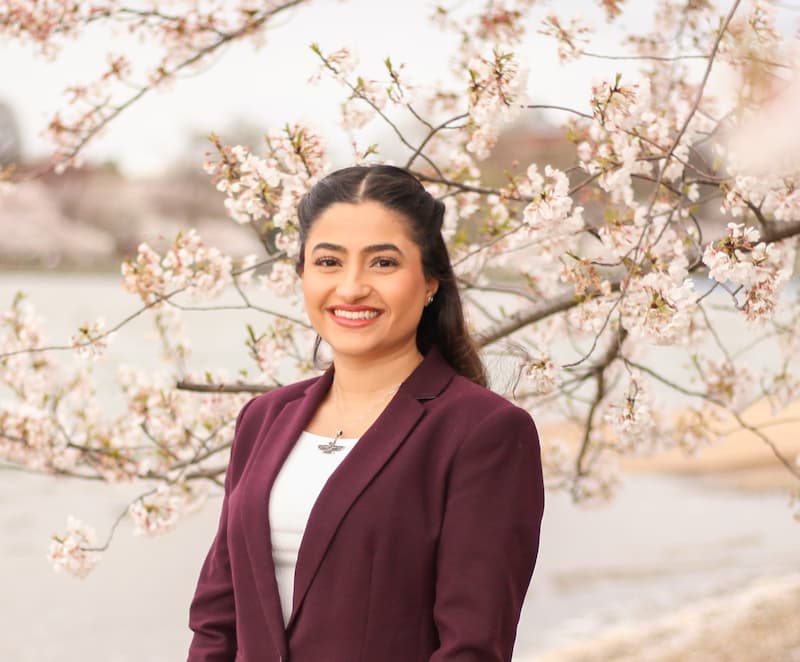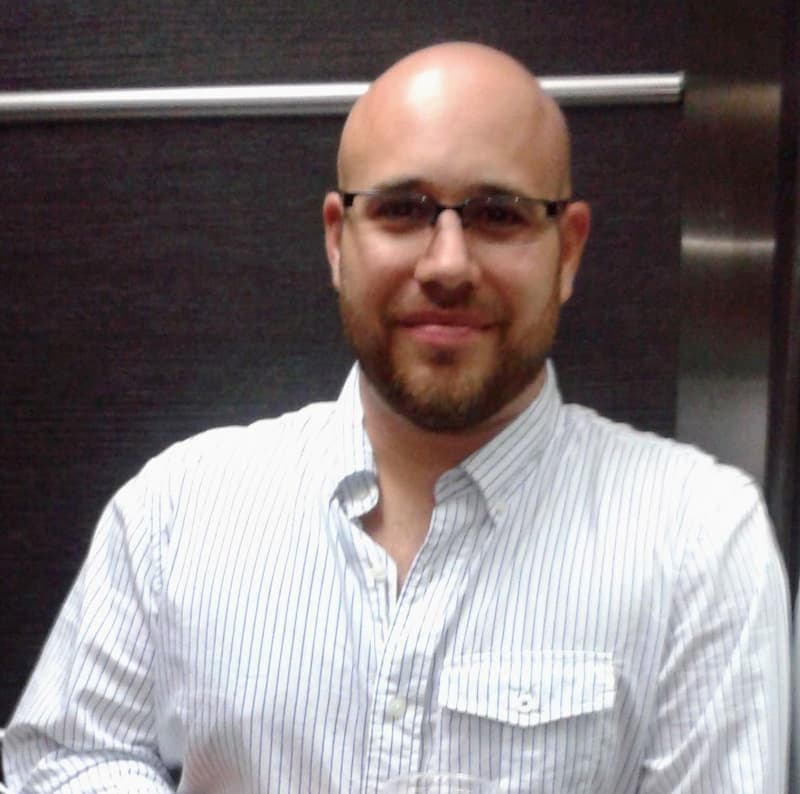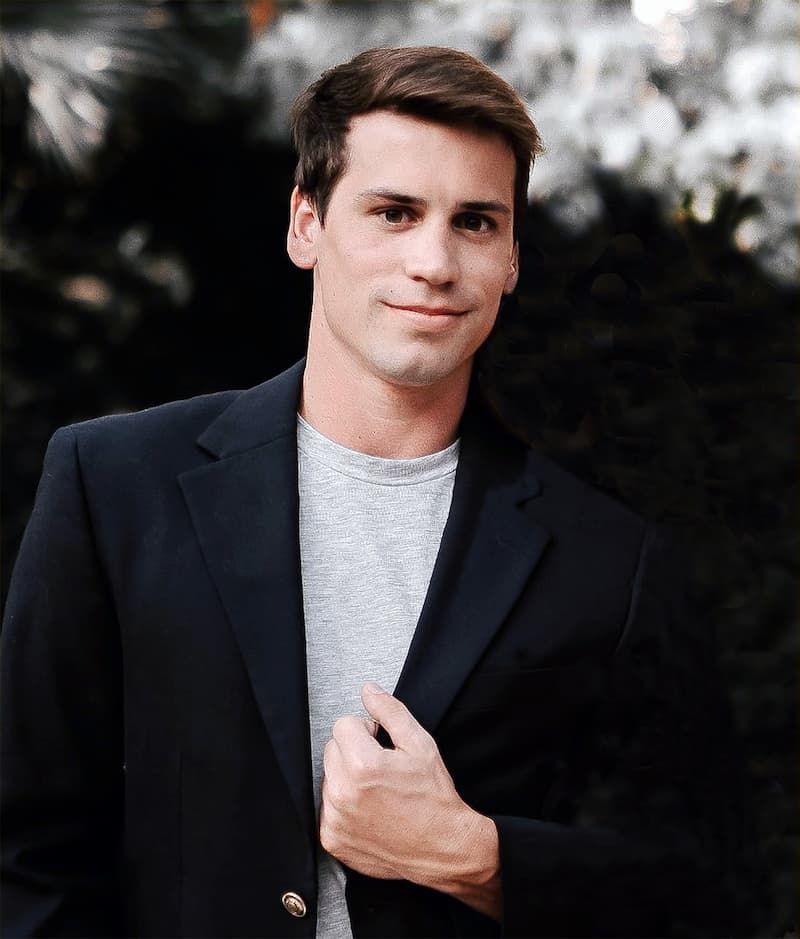Posted on June 3, 2022 by Drew Chapman

Three students from UTSA have been awarded grants in the Fulbright Student Program to travel to Bulgaria, India, and St. Lucia in 2022. The Fulbright program is sponsored by the U.S. Department of State and is the flagship program for international educational exchange. The program seeks to increase mutual cultural understanding of peoples by sending a diverse group of students abroad each year. Over 2,000 students per year at both the undergraduate and graduate level are funded to travel abroad to pursue graduate degrees, independent research, and teach English abroad in over 150 different countries. In the past 4 years, UTSA students have received Fulbright Awards to travel to Bulgaria, Colombia, Germany, India, Malaysia, Spain, St. Lucia, Taiwan, and the United Kingdom.
This year’s UTSA awardees are Forough Askarirad (Psychology), Héctor R. Castrillón-Costa (PhD candidate in Bicultural/Bilingual Studies), and Tom Varner (PhD candidate in Environmental Science). Elise Brittain (PhD candidate in Bicultural/Bilingual Studies) was named an alternate to travel to Uzbekistan. Overall, ten UTSA undergraduates, graduate students, and alumni applied to the program in 2022.
Awardees

Forough Askarirad – English Teaching Assistant Program, Bulgaria
A psychology major and global affairs minor, Askarirad was part of the Spring 2020 Urbino Italy Study Abroad program that was shortened by the COVID-19 Pandemic. Wanting to return to Europe and spend more time abroad, she chose Bulgaria for its crossroads of Slavic, Mediterranean and Middle Eastern influences. T raveling to Bulgaria presents another opportunity to live abroad and become civically engaged with her host community. Askarirad hopes to give back to students through English teaching, as she herself took ESL classes at six years old when her family moved to the United States.
“Growing up in a multicultural environment like San Antonio, I feel passionate about understanding the backgrounds of other individuals. Speaking with those who carry diverse upbringings is essential in learning about the world around you. In gaining a better understanding of the students' culture, I wish to inform them about mine -- both Iranian and American and the Texan traditions I have adopted.”
A student in the Honors College as part of the Terry Scholar Program, Askarirad plans to pursue a career as an immigration attorney and advocate . She is the second Terry Scholar in two years to be recognized by Fulbright. As a First-Gen student, Askarirad sought out mentorship through a number of different professional programs. She interned with t he City of San Antonio's Immigration Liaison Office through the city’s Ambassador’s program. She taught ESL through an Honors College Program with a local church in San Antonio. Demonstrating leadership at UTSA, she founded Mental Health Team, a student organization that seeks to educate students about mental health and remove stigma surrounding care.
Looking to expand her professional experience in policy, in her final semester at UTSA, Askarirad traveled to Washington DC in the Archer Fellowship Program , where she interned with Capital Area Immigrants' Rights (CAIR) Coalition. Following her year in Bulgaria, Askarirad plans to attend law school.

Héctor R. Castrillón-Costa – Research Program, St. Lucia
Castrillón-Costa is a doctoral student in the Department of Bilingual-Bicultural Studies in the College of Education and Human Development, where he also completed his Master’s in the same field. Prior to UTSA, he received his Master’s degree in Caribbean history from the Inter American University of Puerto Rico-Metro. He also has extensive teaching experience as a Dual-language education social studies teacher in Austin.
Castrillón-Costa will travel to St. Lucia to conduct a critical ethnography of educational language policy in St. Lucian schools. He is particularly interested in educational language policies that require the exclusive use of Standard English as a medium of instruction, despite the fact that many students in St. Lucia speak Kweyol, the native Creole language. Castrillón-Costa’s research will be carried out through a collaboration with the Teacher Education Department of the four-year college Sir Arthur Lewis Community College. Castrillón-Costa hopes that his research can inform educational policy and provide greater awareness of the need to study Caribbean Creole languages in relation to education.
Following his Fulbright research, Castrillón-Costa plans to defend his dissertation and enter academia. He hopes to impact educational practitioners through his research, providing theoretical approaches and tools to contribute to equitable educational environments for students of all sociocultural backgrounds:
“As a researcher, I will continue investigating the presence of Caribbean Creoles and Indigenous languages in educational contexts aiming to develop educational language policies that positively recognize minoritized language practices.”

Tom Varner – Research Program, India
Tom Varner is a doctoral student in Geology/Environmental Science and Engineering under the mentorship of Dr. Saugata Datta, Weldon W. Hammond, Jr. Distinguished Professorship in Hydrogeology and Director of UTSA Institute for Water Research, Sustainability and Policy. In India, Varner will conduct field work on arsenic poisoning in drinking water, which affects an estimated 300 million people worldwide. Arsenic is highly prevalent within the Bengal Basin, which spans the border between India and Bangladesh. Working with Dr. Datta and an international team of researchers, Varner had previously traveled to Bangladesh in January 2020 to study a naturally occurring phenomenon called “The Iron Curtain,” in which oxygen rich river water binding with iron-rich sediment can be found to potentially immobilize arsenic.
Varner’s research through Fulbright will be continued in Kolkata, India, on the other side of the Bengal Basin, in collaboration with the Indian Institute of Engineering Science and Technology. In his application, Varner notes the importance of international collaboration in the interest of public good:
“This research, will help promote equitable and sustainable water practices in both India and the US. Issues regarding water equity are global in scale, and through my time in India I hope to share my knowledge as a researcher so that the outcome is a better collective understanding of our natural water resources.”
Varner was also named an alternate for the Critical Language Scholarship to study Bangla, which is spoken in the region of India where his research will be conducted. Upon return in Spring 2023, Varner will defend his dissertation. He hopes to pursue a career promoting safe water practices with the Environmental Protection Agency.
Opening the door to opportunities beyond Fulbright:
While not all applicants will receive the news of a selection to the program, there are many positive takeaways from applying to Fulbright, from building writing skills to learning more about an academic discipline in a global context. UTSA’s campus Fulbright Program Advisor, Andrew Chapman, notes that students learn a lot in the process of applying to Fulbright:
“For one, there are lots of skills that students develop in applications. It might involve learning how to write a statement of grant purpose or it might be that by applying to Fulbright, students are reaching out and networking more with faculty at UTSA about research. We’ve had past applicants who weren’t awarded a grant, but through the application process, developed the writing of their future graduate school application in the US, which earned them a scholarship opportunity in the US. Here, the Fulbright application was a testing ground for new ideas and a foundational experience of writing about future research.”
This year, Alejandra Leos (BA English, 2018), applied to Fulbright Canada to do research at McGill University in Montreal. In her application, she developed a proposal to study French Caribbean identity in literature and film. Through the application process, Leos was interviewed by UTSA English Professor Kerry Sinanan, who specializes in Transatlantic Literature in the Eighteenth and Nineteenth Centuries. Leos received feedback on her research proposal as well as graduate school advice from Professor Sinanan, whom she had previously not met while a student at UTSA. This ultimately led Leos to apply to and be accepted with funding for an English PhD program at the University of Connecticut, where she will start in the fall.
Each year, a campus committee interviews UTSA’s Fulbright applicants, forwarding their recommendations to the national committee. Faculty are selected for their regional and disciplinary expertise, so that they can provide feedback to students on their proposals before final submission. This year UTSA’s Fulbright interview committee was composed of faculty and staff throughout the university:
Ali Atabey (History)
Bridget Drinka (English)
Kimberly Fonzo (English)
Judy Haschenburger (Geological Sciences)
Matthias Hofferberth (Global Affairs)
Vikram Kapoor (Civil and Environmental Engineering)
MaryKate Messimer (Honors College)
Pablo Requena (Modern Languages and Literatures)
Kerry Sinanan (English)
Zhongfeng Tian (Bicultural-Bilingual Studies)
Mario Torres (Dean, College of Education and Human Development)
Michael Villarreal (Urban Education Institute)
Bedrettin Yazan (Bicultural-Bilingual Studies)
Students from all colleges are welcome to apply. The Fulbright Student Program encourages applicants to apply through their home institution’s endorsement. Undergraduate students in their junior and senior years, graduate and professional students, as well as alumni, should apply through the Office of Nationally Competitive Awards, which is housed in the UTSA Honors College. Students typically start applications in early summer in consultation with the UTSA Fulbright program adviser and their faculty mentors.
A version of this story was published in UTSA Today. You can access this article via this link .

